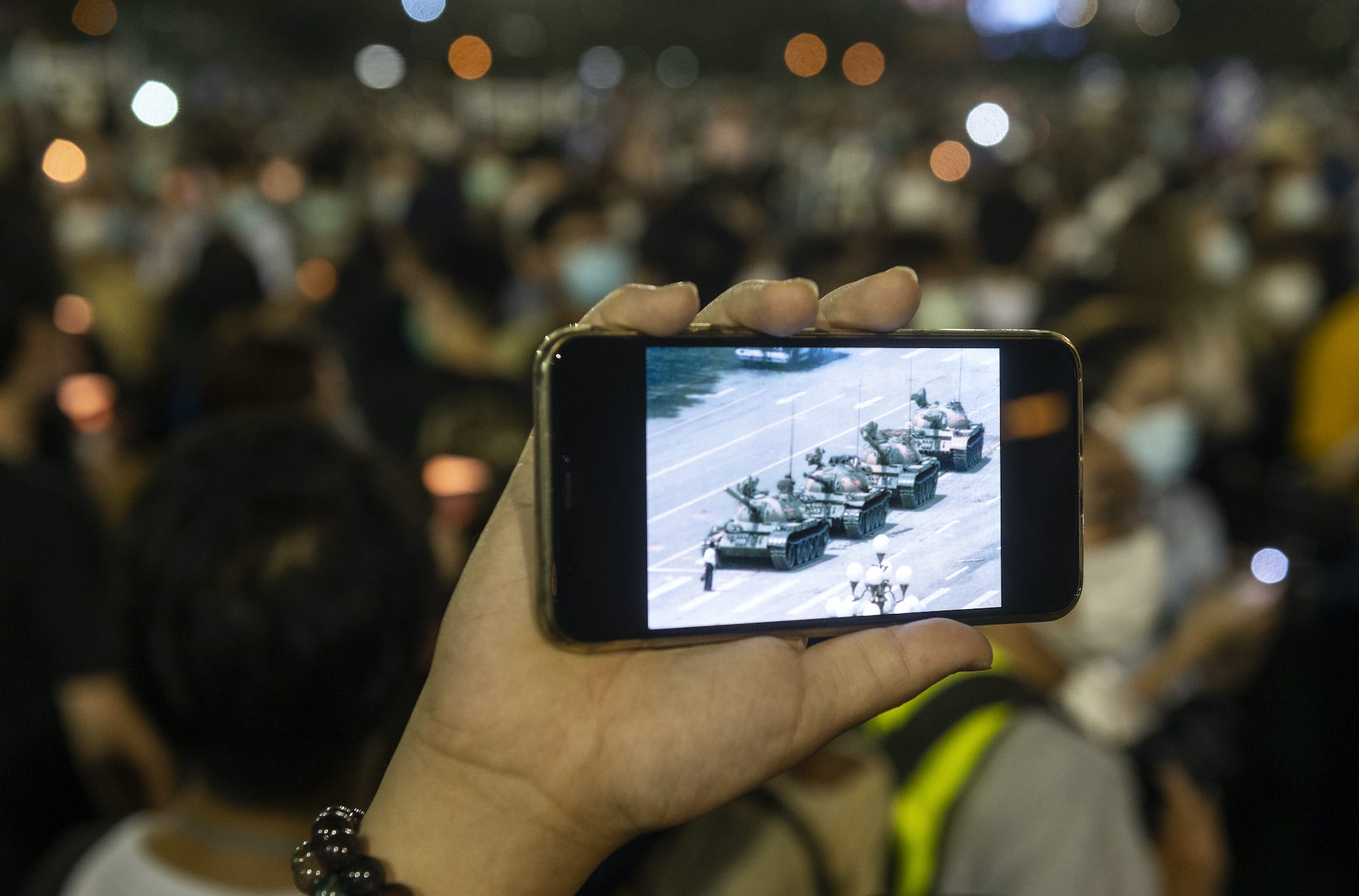
Miguel Candela/Anadolu Agency via Getty Images
- The Department of Justice on Friday filed charges against Zoom executive Xinjiang Jin, accusing the software engineer of using the company’s systems to censor speech.
- The DOJ alleged in a complaint that Jin, Zoom’s primary liaison with Chinese law enforcement, terminated calls held by users commemorating Beijing’s 1989 crackdown on student protesters in Tiananmen Square.
- According to the complaint, Jin fabricated terms of service violations, while his accomplices created fake accounts under protesters’ names to discredit them.
- Zoom said in a blog post that it has fired Jin and placed other employees on leave, and that it is cooperating with law enforcement.
- Visit Business Insider’s homepage for more stories.
US prosecutors on Friday charged a former China-based executive at Zoom with disrupting video meetings commemorating the 31st anniversary of the Tiananmen Square crackdown at the request of the Chinese government.
Xinjiang Jin, 39, faces up to 10 years in prison if convicted of conspiring since January 2019 to use his company’s systems to censor speech, the US Department of Justice said.
In a complaint filed in Brooklyn federal court, prosecutors said the software engineer, Zoom’s main liaison with Chinese law enforcement and intelligence, helped terminate at least four video meetings in May and June, including some involving dissidents who survived the June 4, 1989, student protests.
Jin allegedly fabricated violations of Zoom’s terms of service to justify his actions to his superiors.
Prosecutors also said his accomplices created fake email accounts and Zoom accounts, including in dissidents’ names, to suggest meeting hosts and participants supported terrorism, violence, and child pornography.
In a blog post, Zoom said it fired Jin for violating the San Jose, California-based company's policies, and has placed other employees on leave. It also said there was no indication that enterprise data was shared with China's government.
Zoom said it is cooperating with subpoenas from federal prosecutors in Brooklyn and northern California regarding its dealings with China's government, and with a separate U.S. Securities and Exchange Commission subpoena.
Jin is not in US custody, and a lawyer for him could not be located.
The complaint cited many communications by Jin, including whether an account hosting a meeting with a dissident he called "a lead of such illegal political activities" could be suspended for 24 hours "to prevent subsequent huge influence on us?"
Jin's actions helped Chinese authorities "censor and punish U.S. users' core political speech merely for exercising their rights to free expression," Acting US Attorney Seth DuCharme in Brooklyn said in a statement.
(Reporting by Jonathan Stempel; Editing by Rosalba O'Brien, Jonathan Oatis and Tom Brown)


